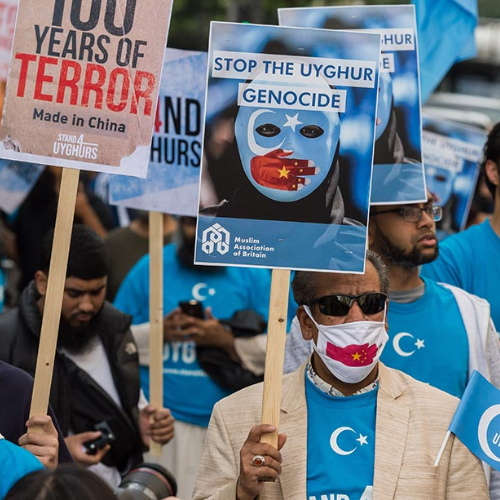The European Union (EU) has made it clear that it will not remove the sanctions placed on certain Chinese officials. These sanctions were originally put in place in 2021. They were meant as a response to serious human rights problems in China’s Xinjiang region. The area is home to the Uyghur people, a Muslim ethnic minority group.
While China has recently shown signs that it might ease its own punishments on European lawmakers, the EU says it will not be changing its stance. A spokesperson from the EU’s foreign affairs team said that the human rights situation in Xinjiang has not gotten any better. Because of this, the EU will continue to enforce the sanctions.
Back in 2021, the EU joined the United States, the United Kingdom, and Canada in punishing Chinese officials and one organization. These penalties included banning those people from entering Europe and freezing any money or property they might have in EU countries. The move caused a sharp reaction from China, which responded by placing its own punishments on European politicians and researchers.
China’s Bold Move: Lifting Sanctions to Revive Trade Deal with EU
Why the Sanctions Were Imposed
The EU and several other countries believe that China is treating the Uyghur population in a very unfair and harmful way. Over the years, many reports from journalists, non-profit groups, and former detainees have described terrible conditions in Xinjiang.
Thousands, possibly even millions, of Uyghurs have been locked up in what China calls “re-education” camps. These places are heavily guarded and people are held there without proper trials. In these camps, many Uyghurs are said to face brainwashing, abuse, and forced labor. They are made to forget their language, their religion, and their way of life.
Outside the camps, life for Uyghurs is also very hard. There is constant watching through cameras and checkpoints. Uyghurs are often punished just for wearing traditional clothes, speaking their language, or praying. Families have been separated. Children have been taken from their parents. Homes have been searched without warning.
Because of these actions, many human rights groups have said that what is happening in Xinjiang should be seen as crimes against humanity. Some have even called it genocide, which means trying to wipe out a group of people completely.
No Change, No Action — Says the EU
Despite all the pressure from around the world, the Chinese government continues to say that it has done nothing wrong. China says it is fighting terrorism and keeping the peace in Xinjiang. It claims that its programs are helping people learn new skills and find jobs.
‘China Track’ Fuels Russia’s $245 Billion Trade as It Sidesteps Western Sanctions
However, the EU disagrees. Officials say they have seen no real changes or improvements in how Uyghurs are being treated. Because of this, they feel there is no reason to lift the current sanctions.
The European Union’s decision also comes at a time when China was reportedly considering making peace by ending some of its counter-sanctions. According to recent reports, Beijing was thinking about removing penalties it had placed on members of the European Parliament. But even if that happens, the EU says it won’t respond by dropping its own measures.
The message from the EU is clear: until there is proof that the situation in Xinjiang is getting better, the sanctions will stay. The European Union believes that standing up for human rights is more important than political deals or trade relationships.
This decision keeps the spotlight on the suffering of the Uyghur people. It also shows that the EU is not willing to look the other way when serious abuses are taking place. The Uyghur community, which has long called for help from the world, continues to rely on global pressure to end their suffering.


